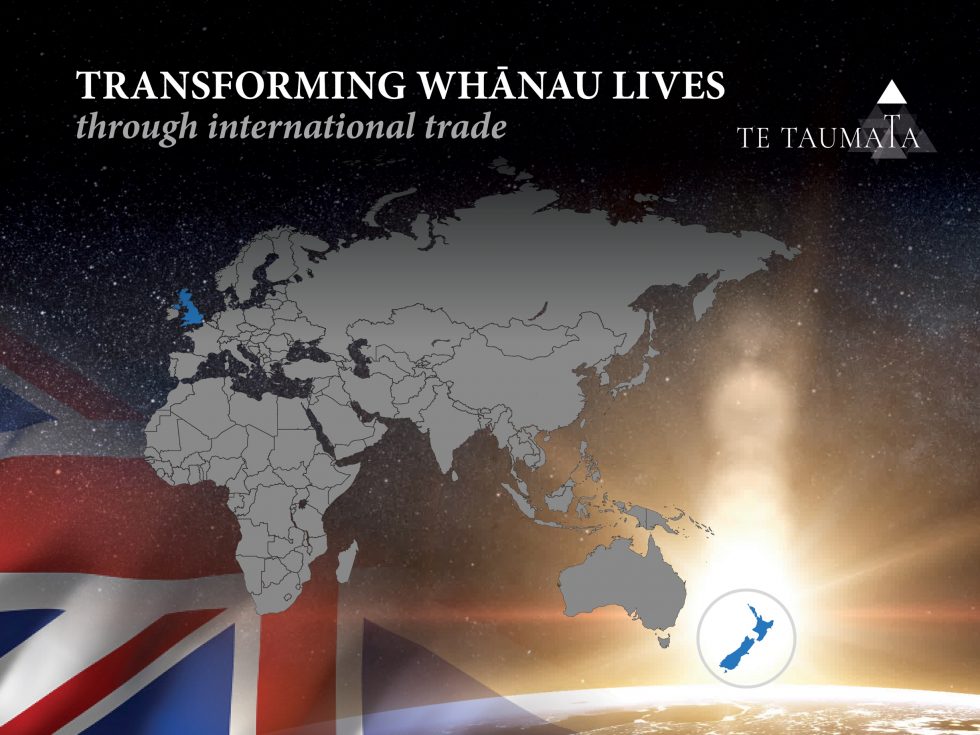This third and final pānui in our NZ/UK FTA series looks at the benefits Māori have secured with the new free trade agreement.
Our previous pānui have focused on goods market access and the FTA’s specific provisions for Intellectual Property (IP) and the Māori Trade and Economic Co-operation chapter.
Today, we will look at the FTA’s considerations of Te Tiriti o Waitangi and the environment as it pertains to Māori.
Te Tiriti o Waitangi | The Treaty of Waitangi
The preamble of the FTA recognises the unique relationship between Māori and the UK, and acknowledges Te Tiriti o Waitangi as a foundational document of constitutional importance to Aotearoa.
As with all trade agreements Aotearoa has concluded since 2001, the NZ/UK FTA includes a Treaty of Waitangi exception clause, which enables the Government to adopt policies to fulfil its obligations to Māori, including under the treaty.

Environment
The NZ/UK FTA contains the most far-reaching Trade and Environment chapter Aotearoa has ever negotiated.
The Trade and Environment chapter, for the first time, acknowledges the important role that sustainable Māori environmental approaches can play in areas such as fisheries, forestry and agriculture (including references to concepts such as kaitiakitanga and mauri).
Key environment considerations:
- Commitment to prohibit subsidies that would increase fishing capacity
- Commitment to take steps to eliminate harmful fossil fuel subsidies
- Prioritising the elimination of tariffs on 293 environmentally beneficial products – the largest such list agreed in any FTA to date.
- Acknowledgement of the urgent need to address climate change, and commitment to working together to do so.
The environment plays an important role in the economic, social, and cultural wellbeing of Māori, and this chapter makes clear the intention and necessity of engaging with Māori in the long-term conservation of the environment.
We hope you have found this pānui series informative. Te Taumata will continue to update you on the implementation of this FTA, and the Māori interest in all the other global trade agreements underway in 2022.


